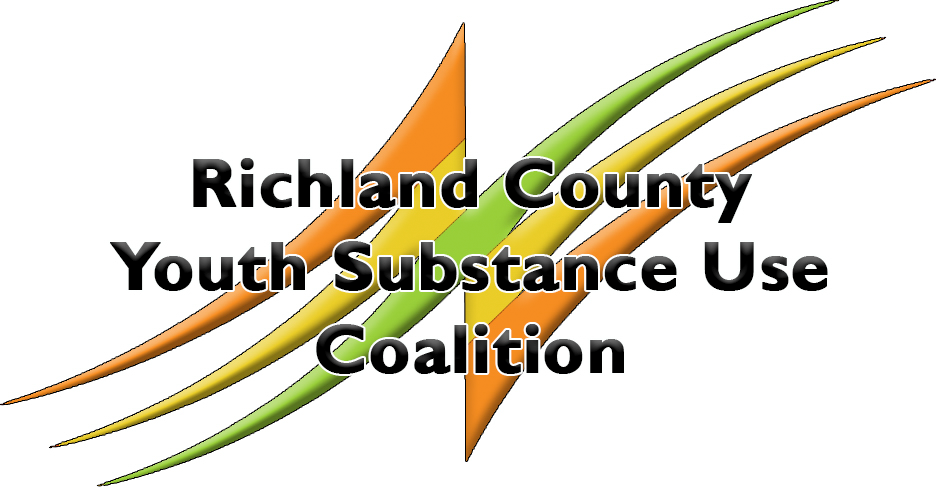
The Drug-Free Communities (DFC) Support Program is the Nation’s leading effort to mobilize communities to prevent youth substance use. Created in 1997, the DFC Program provides grants to community coalitions to strengthen the infrastructure among local partners to create and sustain a reduction in local youth substance use.
Recognizing that local problems need local solutions, DFC-funded coalitions engage multiple sectors of the community and employ a variety of environmental strategies to address local substance use disorders. DFC coalitions involve local communities in finding local solutions. They also help at-risk youth recognize the majority of our Nation’s youth choose not to use substances. As demonstrated by independent evaluations, the DFC Support Program significantly reduces substance use among the target population.
DFC Coalitions (like the Richland County Youth Substance Use Coalition) are made up of community leaders representing twelve sectors that organize to meet the local prevention needs of the youth and families in their communities. These twelve sectors are:
- Youth
- Parents
- Businesses
- Media
- Schools
- Youth-serving organizations
- Law Enforcement
- Religious/fraternal organizations
- Civic/volunteer organizations
- Healthcare professionals
- State, Local, and Tribal governments
- Other substance use organizations

By funding these coalitions, the DFC support program ensures communities adopt a balanced and comprehensive approach to reducing substance use. For more information about the DFC’s work and successes, click here.
The DFC Support Program has two goals:
- Establish and strengthen collaboration among communities, public and private non-profit agencies, as well as federal, state, local, and tribal governments to support the efforts of the community coalitions working to prevent and reduce substance use among youth. *For this program, “youth” is defined as individuals 18 years of age and younger.
- Reduce substance use among youth and, over time, reduce substance use among adults by addressing the factors in a community that increases the risk of substance abuse and promoting the factors that minimize the risk of substance use.
Resources
DrugFreeRC.org
Visit the official website of the Richland County Youth Substance Use Coalition.
Centers for Disease Control and Prevention (CDC)
Preventing youth substance use is critical to ending the drug crisis in America.
The Drug-Free Communities (DFC) Support Program is the nation’s leading effort to mobilize communities to prevent and reduce substance use among youth.
Created in 1997 by the Drug-Free Communities Act, directed by the White House Office of National Drug Control Policy (ONDCP), and now administered by the CDC, the DFC Program provides grants to community coalitions to strengthen the infrastructure among local partners to create and sustain those efforts.
Community Anti-drug Coalitions of America (CADCA)
CADCA has demonstrated that when all sectors of a community come together, social change happens. CADCA represents over 5,000 community coalitions that involve individuals from key sectors including schools, law enforcement, youth, parents, healthcare, media, and others. We have members in every U.S. state and territory and more than 30 countries around the world.
The CADCA coalition model emphasizes the power of community coalitions to prevent substance misuse through collaborative community efforts. We believe that prevention of substance use and misuse before it starts is the most effective and cost-efficient way to reduce substance use and its associated costs.
Substance Abuse and Mental Health Services Administration (SAMHSA)
The Substance Abuse and Mental Health Services Administration (SAMHSA) is the agency within the U.S. Department of Health and Human Services that leads public health efforts to advance the behavioral health of the nation. SAMHSA’s mission is to reduce the impact of substance abuse and mental illness on America’s communities.
Watch the May 23, 2022 webinar about drug seizures and overdoses in Richland County presented by the Richland County Youth Substance Use Coalition and Applied Prevention Science International
For more information, please contact:
Gurpinder Deol, Health Educator
Phone: (419) 774-4754
Email:gdeol@richlandhealth.org
